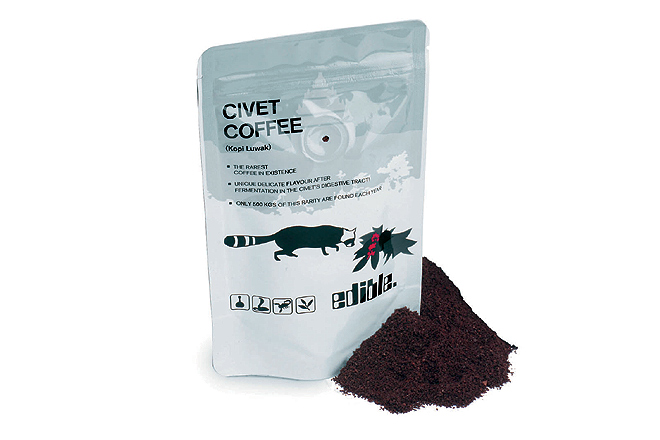The common palm civet, with that black band across its eyes like a
In Japan and the US, kopi luwak, as it’s called in Indonesia, has taken on cult status, commanding in some circles the kind of reverence accorded to Kobe beef. In India too there is apparently a chap called Ganesh who cultivates the bean, “only 2-3kgs annually”, in Karnataka’s BR Hills. To distinguish his coffee from the Indonesian variety, Ganesh calls his coffee karibeck kapi (‘kari-beck’ being Kannada for black cat). It’s probably telling that US demand for kopi luwak is largely driven by Internet distributors. Kopi Luwak also featured on an episode of the Oprah Winfrey Show. And if the idea of drinking coffee that originated in a civet’s alimentary tract does not faze you, civets were thought to be at the root of the SARS outbreak in China. Kopi luwak might not be an urban myth, but it ought to be.
civet coffee
karibeck kapi
Kopi luwak


